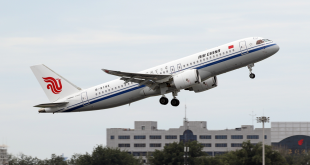By Gerald Mbanda

Although China and African countries differ on political models and historical contexts, China’s rapid transformation from a poor nation a few decades ago to the second largest economy in the world offers valuable lessons for Africa in governance and modernization. Several aspects of China’s development model provide insights that could inform Africa’s growth strategies.
China’s success is partly attributed to its robust institutional framework and long-term planning. The National Development and Reform Commission (NDRC), for instance, plays a pivotal role in coordinating and implementing economic policies with minimal political interference. This autonomy allows for consistent and effective policy execution, a feature that many African nations could emulate by strengthening independent institutions such as national development planning commissions, electoral bodies, and judicial systems.
Moreover, China’s emphasis on long-term planning, exemplified by its five-year plans, ensures cohesive development strategies. African countries could benefit from adopting similar frameworks to guide their development agendas, fostering stability and continuity in policy implementation.
China’s focus on infrastructure development has been instrumental in its modernization. The establishment of Special Economic Zones (SEZs) has attracted investment, spurred technological innovation, and generated employment. African nations, including Ghana, have recognized the potential of SEZs in promoting industrialization. By tailoring these zones to their specific comparative advantages, such as agro-processing and mineral refinement, African countries can reduce dependence on raw material exports and enhance economic resilience.
Additionally, China’s involvement in large-scale infrastructure projects in Africa, such as the Sapphire Float Glass Factory in Tanzania, demonstrates the potential benefits of Chinese investment in industrialization. This factory, inaugurated in September 2023, has created over 1,000 direct jobs and nearly 4,000 indirect jobs, contributing significantly to Tanzania’s industrial sector.
China’s advancements in digital technology and artificial intelligence (AI) present opportunities for Africa’s modernization. The collaboration between China and Africa in digital infrastructure development has led to the establishment of initiatives like the China-Africa Digital Technology Cooperation Center. These partnerships focus on AI, 5G/6G, high-performance computing, and quantum communication, aiming to bridge the digital divide in Africa.
Furthermore, China’s support for digital education in Africa, exemplified by initiatives like the Digital Egypt Builders Initiative, provides scholarships and training in digital skills. Such programs equip Africa’s youth with the necessary tools to thrive in the digital age, fostering innovation and technological advancement across the continent.
Recognizing the importance of capable leadership in governance, China has invested in training African political cadres. Through programs like the Julius Nyerere School of Leadership in Tanzania, China offers seminars on governance and development strategies. These initiatives aim to enhance the governance capacity of African nations by providing leaders with insights into China’s development experience.
Additionally, China’s establishment of the Institute of South-South Cooperation and Development at Peking University underscores its commitment to sharing governance knowledge with developing countries. By training high-level talents in public management, China supports the development of effective governance structures in Africa.
China’s “Access to Satellite TV for 10,000 African Villages” project exemplifies its approach to public diplomacy and information dissemination. Launched in 2015, this initiative aims to reduce the digital divide in African rural areas by providing villages with access to digital television. The project not only expands access to information but also promotes cultural exchange and mutual understanding between China and Africa.
Such initiatives highlight the importance of information accessibility in fostering informed citizenry and promoting development. African governments could consider similar projects to enhance public awareness and engagement in governance processes.
China’s approach to international relations emphasizes strategic partnerships and regional cooperation. The Forum on China-Africa Cooperation (FOCAC), established in 2000, serves as a platform for dialogue and collaboration between China and African countries. Through FOCAC, China has committed to supporting Africa’s development through initiatives in trade, agriculture, and security.
By strengthening regional cooperation and fostering partnerships with external actors, African nations can enhance their collective bargaining power and access to resources, facilitating sustainable development.
While Africa’s path to modernization is unique and context-specific, China’s experiences offer valuable lessons in governance and development. By strengthening institutions, investing in infrastructure and digital technologies, building governance capacity, promoting information accessibility, and fostering strategic partnerships, African nations can chart a course toward sustainable and inclusive development. Embracing these lessons, tailored to local contexts, can empower Africa to realize its full potential in the 21st century.
 Africa -China Review Africa -China Cooperation and Transformation
Africa -China Review Africa -China Cooperation and Transformation
